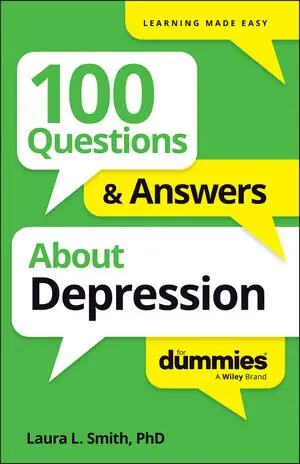If you’re depressed, know where you can find help. And know what you should and should not do to make yourself feel better.
 © aslysun / Shutterstock.com
© aslysun / Shutterstock.com14 signs you might be depressed
People experience depression in different ways. This symptom checklist can provide you with a rough idea as to whether you’re experiencing depression. Check all items that apply to you.
- Feeling worthless
- Change in appetite
- Avoiding contact with other people
- Less energy than usual
- Not looking forward to anything
- More aches and pains lately
- Unable to concentrate like usual
- Feelings of guilt
- Loss of interest in hobbies and things
- Feeling hopeless
- Feeling sad and empty
- Sleeping too much or too little
- Dwelling on thoughts of death
- Unable to make decisions
Any of these symptoms can indicate that you’re not feeling up to par. Merely checking one or two doesn’t necessarily mean you’re depressed, but the more items you check, the greater the concern of possible depression.
If you or a loved one is suffering from depression and experiencing thoughts of self-harm, call the National Suicide Prevention Lifeline at (800) 273-8255, or your local suicide prevention hotline.
Anyone can have these feelings for a little while. You should mainly be concerned if these symptoms last for more than a week or two. However, if you’re having thoughts of suicide or death, get help now.
5 places to get help for your depression
If you think that you may be depressed, don’t despair. Depression is treatable, and lots of help is available. Here are some sources you can consult:
- Your family doctor: Ask for a complete physical. Sometimes depression is the result of other medical problems.
- Mental health professionals: See one of these professionals after you rule out other physical causes for your low mood. Licensed psychologists, social workers, and counselors can competently diagnose and treat depression.
- Psychiatrists: These physicians have specialized training in the treatment of depression and other mental disorders. They typically focus on the use of medication and other biologically based treatments.
- The Internet: We recommend WebMD and the American Psychological Association as especially informative sites with lots of useful, user-friendly information about depression. But remember that the internet can’t replace professional help.
- Books about depression. Start with this book and then visit your library. You can’t read too much about the problem.
Depression dos and don'ts
If you are depressed, you want to avoid doing nothing, and you also need to guard against having the wrong thoughts about your situation. Here are a few things for you to do or absolutely not to do:
- Do get help. You can start with self-help resources, like the book listed in this article. However, you need to see a professional if your depression doesn’t lift soon.
- Don’t ignore feelings of hopelessness or suicidal thoughts. These symptoms are serious! If you have these symptoms, seek help immediately.
- Don’t think that there’s nothing you can do. Depression is highly treatable.
- Do keep trying. If your first attempt to treat depression doesn’t work, try something new. A variety of ways exist to help you deal with depression.
- Don’t blame yourself. Depression has many causes, and you certainly didn’t ask for your depression.
4 ways to deal with bad moods
Everyone experiences bad moods from time to time. A bad mood isn’t the same as depression. Bad moods are transient, and they lift after a while. Here are a few things you can do to alleviate a simple bad mood:
- Get moving. Almost any aerobic activity can alleviate a bad mood. Dance, run, or play. Get that heart pounding.
- Be grateful. Make a list of what you feel grateful for. Bad moods may make you forget the good things in your life. Spend a few minutes considering life’s gifts, from small to large.
- Don’t catastrophize. Realize that everyone feels a little low once in a while.
- Help someone. Focusing on helping someone else is one of the best ways to overcome a lousy mood. It’s a great antidote for dwelling on your own misfortune.






